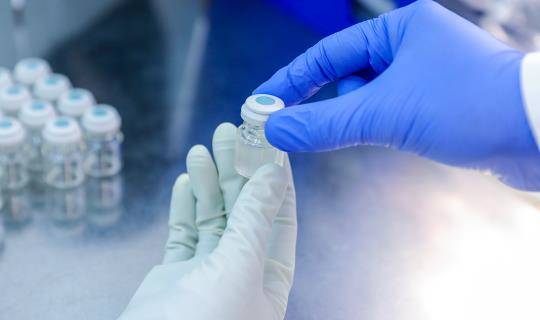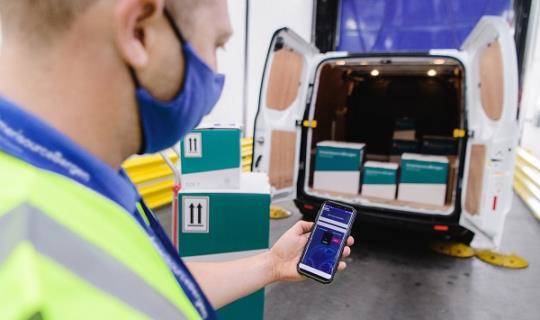Article: Busting Biopharma Supply Chain Myths - Five Ideas that COVID-19 has Proved Wrong
By World Courier
A Change in Thinking
The pandemic is putting biopharma supply chains under incredible stress, some to an extent that’s never been experienced before. As challenging as they are, these situations can offer learning opportunities for the industry – ways to minimize the chances of repeating mistakes and uncover new ways to adapt. In this article, we’ll unpick some of the assumptions and myths that have been turned on their head by the COVID-19 crisis.
Myth 1: A crisis will be short term, regionalized and will not affect standardized regulations
Fact:
When Eyjafjallajökull erupted in 2010, it had an immediate impact on flights across Europe, with 20 countries closing their airspace. There were logistics disruptions across the continent for many weeks, with a backlog stretching for several months. Despite this, there was confidence in the mitigation efforts put into place during and after the event; a widespread assumption that contingency plans would be able to cope with the next big disaster.
However, the impact of COVID-19 has shown this confidence to be optimistic in some cases. Nine months on from the start of the pandemic we are still seeing spikes in cases worldwide. With new cases comes new barriers for logistics, adding to the existing difficulties. Regulations across EU states may not be aligned, and some countries applying local lockdowns even have different regulations for different cities.
Evidently this is an ongoing, global crisis with specific local implications. Which means that we need to be prepared for continuing change in the logistics situation, and retain the increased awareness we have developed for the medium to long term. We should have plans, but also be reactive to change.
Myth 2: Having an agreement with a small set of carriers drives efficiencies of scale.
Fact:
Biopharma companies often strive for cost and time efficiencies within their supply chains by looking to economies of scale provided by exclusive agreements with specific carriers. However, the COVID-19 pandemic and the resulting restrictions and closures have shown the limitations of this tactic.
Current conditions have meant manufacturers and their logistics partners have needed to pivot at a moment’s notice. Those with a carrier-agnostic approach provide in-built flexibility to adjust processes as needed, moving from booking capacity on commercial airlines to block-booking freight capacity before demand arises to keep shipments moving.
More recently, there is increasing cost pressure on the airline industry and decreasing passenger numbers which reduces flights. Many airlines are also favoring narrow-body planes which means there is more product and less cargo space available to transport it. World Courier is always ready to shift to another flight, carrier or mode of transport quickly. In difficult, ever-changing circumstances, it’s this flexibility that will be the real driver of both cost and time savings.
Myth 3: All care needs to take place in a clinical or hospital setting
Fact:
Prior to the outbreak of COVID-19, the direct-to-patient model was gaining momentum. With the transport restrictions and travel difficulties associated with COVID-19, direct-to-patient treatment has cemented itself as an essential tactic for keeping trials running and ensuring that patients can access their medicine.
While driven originally by necessity, many patients are finding it to be a convenient and effective alternative. Advances in technology have meant options such as telemedicine and videoconferencing are more widely available and can be a helpful touchpoint for patients and doctors. Looking further ahead, many of our clients are investigating a hybrid approach, combining clinical site and home care. This ensures reliable results for trials as well as comfort and reassurance for patients. Any model that allows trials to continue safely and reliably, even during times of crisis, will help to add resilience to supply chains. However, it’s vital that study sponsors include any plans to start or pivot to direct-to-patient treatment in the trial protocol.
Myth 4: Contingency plans are often over cautious
Fact:
The industry response has been robust, and that is testament to the level of contingency planning throughout the supply chain. People carrying out their due diligence could’ve been forgiven for thinking their plans may never see the light of day. Moving forward, the same level of rigor will be put into the process. But, having witnessed firsthand the devastating disruption caused by a long-term global crisis, many may have a new mindset. This could mean increasing the frequency of planning reviews or practice exercises, as well as looking into carrier-agnostic solutions and more localized storage. [MLV1]
Myth 5: Regulators aren’t always agile
Fact:
During COVID-19, regulators have shown a great deal of flexibility in allowing for clinical trial protocol variations. Theirs is a pragmatic approach, looking at the risks involved in every unique scenario, with the main focus always on the potential impact on patient safety.
The FDA has commented that “If scheduled visits at clinical sites will be significantly impacted, certain investigational products, such as those that are typically distributed for self-administration, may be amenable to alternative secure delivery methods.”
World Courier has had experience with this, as regulators have facilitated direct-to-patient trials for our clients. This flexibility has enabled trials to keep running and patients to keep receiving treatment. However, as pointed out by our Global Accounts Director, David Spillett, it is of paramount importance that the deviation be documented and handled in accordance with local guidance.
Conclusion: Expertise beats assumptions
During times of increased risk, making incorrect assumptions about how to avoid it only adds to the problem. In situations like this, expertise and clear thinking are required. At World Courier we have wide-ranging local and global experience, helping clients keep their promises to patients during crises like the Ebola outbreak and the eruption of Eyjafjallajökull. For more information and articles on biopharma logistics during COVID-19, visit our content hub.
Topics:
COVID-19



